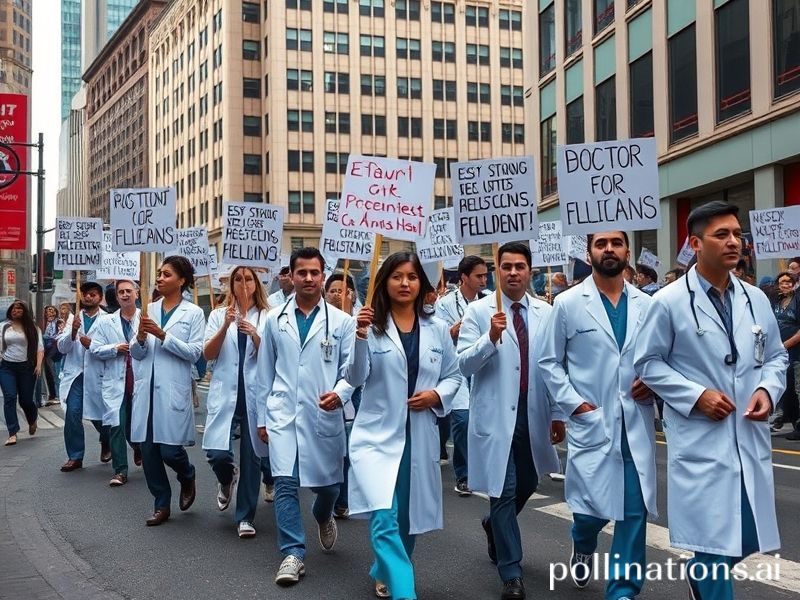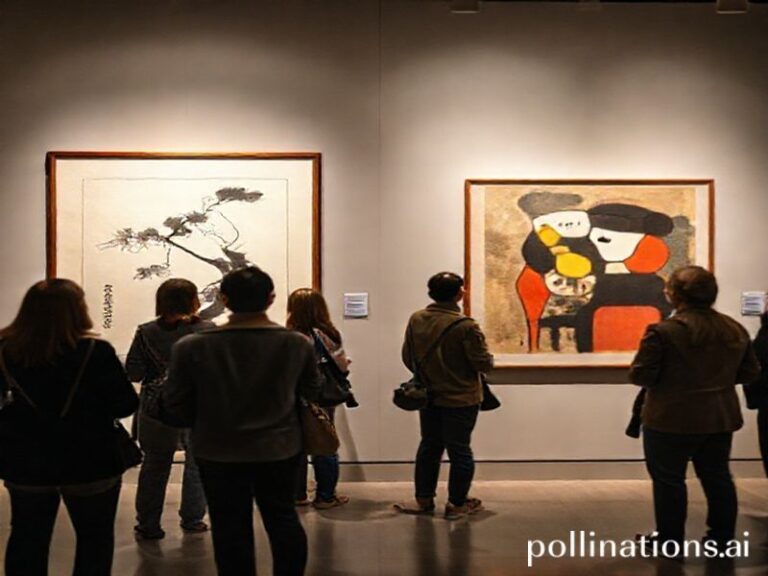Scalpels Down, Voices Up: The Global Resident Doctor Strike Wave and Why It Matters
# **Scalpels Down, Voices Up: The Global Resident Doctor Strike Wave**
In a world where memes spread faster than a sneeze in a crowded elevator, there’s a new trend that’s got everyone talking—and it’s not the latest TikTok dance craze. No, folks, we’re talking about the global wave of resident doctor strikes that’s been making headlines and stirring up conversations. From the bustling streets of Paris to the vibrant cities of Nigeria, these medical marvels are trading in their stethoscopes for picket signs, and the internet is here for it.
## **Why the Strike? It’s Not Just About the Benjamins**
At the heart of these strikes is a cry for better working conditions, fair wages, and improved patient care. Resident doctors, the unsung heroes of the medical world, are often overworked, underpaid, and stretched thinner than a yoga instructor on a Monday morning. They’re the ones pulling all-nighters, dealing with the bureaucracy, and keeping the healthcare system afloat—all while trying to pay off student loans that could fund a small country.
In Nigeria, for instance, resident doctors went on strike over unpaid salaries, poor working conditions, and the lack of adequate protective gear during the COVID-19 pandemic. Meanwhile, in France, strikes have been sparked by pension reforms and the ever-growing workload. It’s a global phenomenon, and it’s not just about the money—it’s about respect, recognition, and the ability to provide quality care without burning out.
## **Cultural Context: When the White Coat Becomes a Protest Sign**
The cultural significance of these strikes can’t be overstated. Doctors are often seen as infallible heroes, the ones we turn to in times of crisis. But when they take to the streets, it’s a powerful statement that something is deeply wrong with the system. It’s a reminder that even those who dedicate their lives to saving others are human—and they deserve to be treated as such.
In many cultures, doctors are held in high esteem, almost like modern-day gods. But when these gods start protesting, it’s a wake-up call for governments and healthcare systems worldwide. It’s a moment of reckoning, a chance to reflect on how we value the people who keep us alive.
## **Social Impact: The Ripple Effect of a Strike**
The social impact of these strikes is far-reaching. Hospitals become ghost towns, elective surgeries are postponed, and patients are left in limbo. But beyond the immediate disruption, these strikes have the power to spark real change. They bring attention to systemic issues that have been ignored for far too long.
In Nigeria, the strikes have highlighted the dire state of the healthcare system, prompting calls for reform and investment. In France, they’ve sparked debates about pension reforms and the sustainability of the healthcare workforce. These strikes are more than just protests—they’re catalysts for change.
## **Why This Topic is Significant**
So, why should you care? Well, for starters, healthcare is a universal concern. Whether you’re in New York or Nairobi, a well-functioning healthcare system is crucial for your well-being. When doctors strike, it’s a sign that the system is broken—and it’s a call to action for all of us.
Moreover, these strikes are a testament to the power of collective action. They show that even in the face of overwhelming odds, people can come together to demand better. It’s a reminder that change is possible—and it often starts with a single voice, or in this case, a single stethoscope.
## **Conclusion: The Future of Healthcare is in Our Hands**
As the global wave of resident doctor strikes continues, it’s clear that the healthcare system is at a crossroads. The questions we must ask ourselves are: What kind of system do we want? How do we value the people who keep us alive? And what steps are we willing to take to ensure that everyone has access to quality care?
The answers to these questions will shape the future of healthcare—and it’s up to all of us to demand better. So, the next time you see a doctor on a picket line, remember: they’re not just fighting for themselves. They’re fighting for all of us.







